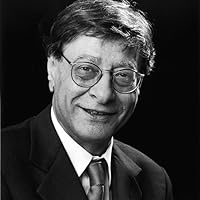Occupation Quotes
Quotes tagged as "occupation"
Showing 1-30 of 151

“Every job from the heart is, ultimately, of equal value. The nurse injects the syringe; the writer slides the pen; the farmer plows the dirt; the comedian draws the laughter. Monetary income is the perfect deceiver of a man's true worth.”
― Killosophy
― Killosophy

“If you really want to possess a woman, you must think like her, and the first thing to do is win over her soul. The rest, that sweet, soft wrapping that steals away your senses and your virtue, is a bonus.”
― The Shadow of the Wind
― The Shadow of the Wind

“Women have sat indoors all these millions of years, so that by this time the very walls are permeated by their creative force, which has, indeed, so overcharged the capacity of bricks and mortar that it must needs harness itself to pens and brushes and business and politics.”
― A Room of One’s Own
― A Room of One’s Own
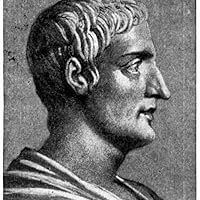
“They make a desolation and call it peace.”
― C. Cornelii Taciti Germania, Agricola, Et De Oratoribus Dialogus (Classic Reprint)
― C. Cornelii Taciti Germania, Agricola, Et De Oratoribus Dialogus (Classic Reprint)
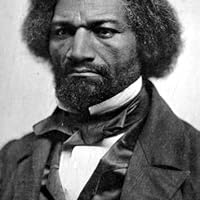
“A man is worked upon by what he works on. He may carve out his circumstances, but his circumstances will carve him out as well.”
― The Portable Frederick Douglass
― The Portable Frederick Douglass

“Occupation, curfew, settlements, closed military zone, administrative detention, siege, preventive strike, terrorist infrastructure, transfer. Their WAR destroys language. Speaks genocide with the words of a quiet technician.
Occupation means that you cannot trust the OPEN SKY, or any open street near to the gates of snipers tower. It means that you cannot trust the future or have faith that the past will always be there.
Occupation means you live out your live under military rule, and the constant threat of death, a quick death from a snipers bullet or a rocket attack from an M16.
A crushing, suffocating death, a slow bleeding death in an ambulance stopped for hours at a checkpoint. A dark death, at a torture table in an Israeli prison: just a random arbitrary death.
A cold calculated death: from a curable disease. A thousand small deaths while you watch your family dying around you.
Occupation means that every day you die, and the world watches in silence. As if your death was nothing, as if you were a stone falling in the earth, water falling over water.
And if you face all of this death and indifference and keep your humanity, and your love and your dignity and YOU refuse to surrender to their terror, then you know something of the courage that is Palestine.”
―
Occupation means that you cannot trust the OPEN SKY, or any open street near to the gates of snipers tower. It means that you cannot trust the future or have faith that the past will always be there.
Occupation means you live out your live under military rule, and the constant threat of death, a quick death from a snipers bullet or a rocket attack from an M16.
A crushing, suffocating death, a slow bleeding death in an ambulance stopped for hours at a checkpoint. A dark death, at a torture table in an Israeli prison: just a random arbitrary death.
A cold calculated death: from a curable disease. A thousand small deaths while you watch your family dying around you.
Occupation means that every day you die, and the world watches in silence. As if your death was nothing, as if you were a stone falling in the earth, water falling over water.
And if you face all of this death and indifference and keep your humanity, and your love and your dignity and YOU refuse to surrender to their terror, then you know something of the courage that is Palestine.”
―

“The least strained and most natural ways of the soul are the most beautiful; the best occupations are the least forced.”
―
―

“Growing up, I always had a soldier mentality. As a kid I wanted to be a soldier, a fighter pilot, a covert agent, professions that require a great deal of bravery and risk and putting oneself in grave danger in order to complete the mission. Even though I did not become all those things, and unless my predisposition, in its youngest years, already had me leaning towards them, the interest that was there still shaped my philosophies. To this day I honor risk and sacrifice for the good of others - my views on life and love are heavily influenced by this.”
― Healology
― Healology
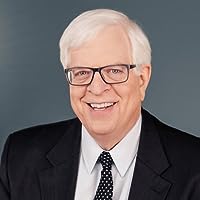
“Whatever one does for a living, three questions need to be confronted before it is too late: What really matters to me? What price do my spouse and kids pay for my career success? What price does my soul pay?”
― Think a Second Time
― Think a Second Time

“If you will look about you (which most people won't do)," says Sergeant Cuff, "you will see that the nature of a man's tastes is, most times, as opposite as possible to the nature of a man's business.”
― The Moonstone
― The Moonstone
“The problem is that those of us who are lucky enough to do work that we love are sometimes cursed with too damn much of it.”
― All I Did Was Ask: Conversations with Writers, Actors, Musicians, and Artists
― All I Did Was Ask: Conversations with Writers, Actors, Musicians, and Artists
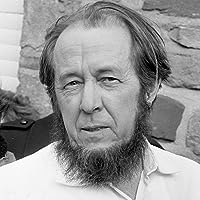
“Over the years I have had much occasion to ponder this word, the intelligentsia. We are all very fond of including ourselves in it—but you see not all of us belong. In the Soviet Union this word has acquired a completely distorted meaning. They began to classify among the intelligentsia all those who don't work (and are afraid to) with their hands. All the Party, government, military, and trade union bureaucrats have been included. All bookkeepers and accountants—the mechanical slaves of Debit. All office employees. And with even greater ease we include here all teachers (even those who are no more than talking textbooks and have neither independent knowledge nor an independent view of education). All physicians, including those capable only of making doodles on the patients' case histories. And without the slightest hesitation all those who are only in the vicinity of editorial offices, publishing houses, cinema studios, and philharmonic orchestras are included here, not even to mention those who actually get published, make films, or pull a fiddle bow.
And yet the truth is that not one of these criteria permits a person to be classified in the intelligentsia. If we do not want to lose this concept, we must not devalue it. The intellectual is not defined by professional pursuit and type of occupation. Nor are good upbringing and good family enough in themselves to produce and intellectual. An intellectual is a person whose interests in and preoccupation with the spiritual side of life are insistent and constant and not forced by external circumstances, even flying in the face of them. An intellectual is a person whose thought is nonimitative.”
― The Gulag Archipelago, 1918-1956: An Experiment in Literary Investigation, Books III-IV
And yet the truth is that not one of these criteria permits a person to be classified in the intelligentsia. If we do not want to lose this concept, we must not devalue it. The intellectual is not defined by professional pursuit and type of occupation. Nor are good upbringing and good family enough in themselves to produce and intellectual. An intellectual is a person whose interests in and preoccupation with the spiritual side of life are insistent and constant and not forced by external circumstances, even flying in the face of them. An intellectual is a person whose thought is nonimitative.”
― The Gulag Archipelago, 1918-1956: An Experiment in Literary Investigation, Books III-IV
“I always have believed that we should not call it an Arab-Israeli issue or a Palestinian-Arab dispute or a peace negotiation. I think we should call it what it is: an occupation of Palestine, full stop. This is not a popular position in mixed company.”
― Blankets become Jackets
― Blankets become Jackets

“If you want to judge if a party is a Lebanese enough, let me say we take up arms and fight against the occupation of our land, is that Lebanese enough?”
― Voice of Hezbollah: The Statements of Sayyed Hassan Nasrallah
― Voice of Hezbollah: The Statements of Sayyed Hassan Nasrallah
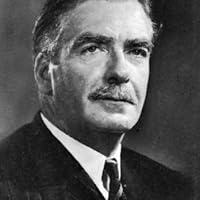
“... if one hasn't been through, as our people mercifully did not go through, the horrors of an occupation by a foreign power, you have no right to pronounce upon what a country does, which has been through all that.”
―
―

“When I was nineteen years old, I was babysitting a little five-year-old girl. She kept drawing picture after picture, and as I saw there watching her draw, I asked, "Do you want to be an artist when you grow up?"
"What do you mean?"
"An artist," I replied. "Is that what you want to be when you grow up?"
She looked at me, confused, and said, "But I already am an artist."
She was right. She didn't need to wait to grow up in order to be an artist. She already was one. Childhood is not a rehearsal for life; childhood is life and children are already whole people.”
― Hold On, But Don't Hold Still
"What do you mean?"
"An artist," I replied. "Is that what you want to be when you grow up?"
She looked at me, confused, and said, "But I already am an artist."
She was right. She didn't need to wait to grow up in order to be an artist. She already was one. Childhood is not a rehearsal for life; childhood is life and children are already whole people.”
― Hold On, But Don't Hold Still
“In spite of lip service paid to domestic duties, in 1881 the Census excluded women’s household chores from the category of productive work and, for the first time, housewives were classified as unoccupied.”
― The Politics of Breastfeeding: When Breasts are Bad for Business
― The Politics of Breastfeeding: When Breasts are Bad for Business
“There wasn’t a question of what compromise there should be or what kind of peace process we should engage in. There was only one discussion: How do we remove the colonial power that is occupying our
country?”
― Blankets become Jackets
country?”
― Blankets become Jackets
“. . . published the Road Map to Peace. The premise of this plan, as the Palestinian historians Samih Farsoun and Naseer Aruri point out, "is that the nearly forty-year-old impasse is not caused by an abnormal and illegal occupation but by the Palestinian resistance to that occupation. Progress was thus linked to ending the intifada and all acts of resistance rather than ending the occupation or reversing decades of colonial impoverishment of land, resource, and institutions.”
―
―
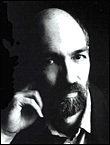
“His idleness was his refuge, and in this he was like many others in [occupied] France in that period; laziness became political.”
― The Dream of Scipio
― The Dream of Scipio
“What draws me to Palestine, then, is neither nationalism not patriotism, but my sense of justice, my refusal to remain silent in the face of injustice, my unwillingness to just go on living my life -- and enjoying the privileges of a tenured university professor – while trying to block out and ignore what Wordsworth once called the still, sad music of humanity.”
― Palestine Inside Out: An Everyday Occupation
― Palestine Inside Out: An Everyday Occupation
“Israel maintains its pressure on the Palestinian population not simply for its own security, then, but because such pressure has for four decades enabled it to maintain control over the territories- and, quite simply, because it encourages Palestinians to leave.”
― Palestine Inside Out: An Everyday Occupation
― Palestine Inside Out: An Everyday Occupation
“No occupation by a people of another can ever, of course, be characterized as benign. Occupation is, by definition, vile and scurrilous. It also goes to the heart of the human dialectic: for the venomous consciousness of the occupiers turns unheard in time as they subjugate their victims by the rule of the gun, this destroying for themselves what there is of humanity in humans and restoring in them what there is of beast. For brutality has a way about it of seeking vengeance on those who unleash it. Conversely, the struggle of the occupied draws into its orbit men and women whose consciousness is penetrated by a senseof the value of freedom. Whereas Zionism, as a colonizing ideology, has become the code of the bully, tyrannizing people through contempt of their humanity...”
― Soul in Exile
― Soul in Exile
“Israelis can win a war but in doing so they submit to us. They can occupy Palestine, yet they remain captive to the dialectic of its existence. They can banish the native presence, but cannot ostracize its reality.”
― Soul in Exile
― Soul in Exile
“The starving children of Tel Zaatar who arrived in West Beirut will never be the same again. These were children who walked all the way from their camp and on the way found themselves walking alone. Children who saw their parents bayonetted to death in front of their eyes. Children who were shellshocked. Children who, before the siege, had been physically and mentally healthy and were now deaf-mute. Children who went into convulsions when they heard the word "water." Children who woke up in the middle of the night screaming. Children who lost every member of their families. Children who did not play, or run around, but sat staring, responding neither to questions nor the offer of food.”
― Soul in Exile
― Soul in Exile
“The siege of Beirut brought with it all the ancient terrors of sieges -- city gates broken, libraries burned down, fire dropped on defenders. A truly medieval event recalling these sieges of Jerusalem in 1099 and Acre in 1189. This siege also was a metaphor of confrontation between East and West and a fascinating symbol of the clash of self-definitions between settler-colonialism and native resistance. It was a mirage from the medieval age that bespoke, as sieges then often did, the most dreadful catastrophe that could befall people: the destruction of their city and their subsequent wanderings in search of shelter to house their passions and the outward expression of their culture. To Palestinians everywhere, the siege of Beirut became the most monumental event in their modern history -- even more monumental than the dismemberment of, and exodus from, Palestine in 1948.
The Israelis tried everything during these siege. To starve the city. To bomb it to rubble. To terrorize its inhabitants with psychological warfare. To cut its water, medical, and food supplies.”
― Soul in Exile
The Israelis tried everything during these siege. To starve the city. To bomb it to rubble. To terrorize its inhabitants with psychological warfare. To cut its water, medical, and food supplies.”
― Soul in Exile
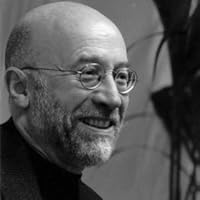
“У Франції нацистам вистачило півтори тисячі своїх людей. Вони були такі впевнені в надійності французької поліції та військових підрозділів, що, окрім адміністративного штату, призначили лишень 6 тисяч осіб німецької цивільної та військової поліції, щоб забезпечувати покору 35-мільйонної країни.”
― Postwar: A History of Europe Since 1945
― Postwar: A History of Europe Since 1945
“The notion that all problems in the Middle East flow from Palestinian oppression, that Palestinian oppression flows from Israel’s occupation of “Palestinian lands,” and that if the occupation were ended, all problems in the Middle East would end, is false.”
― The Case for a Larger Israel
― The Case for a Larger Israel
All Quotes
|
My Quotes
|
Add A Quote
Browse By Tag
- Love Quotes 97.5k
- Life Quotes 76k
- Inspirational Quotes 73k
- Humor Quotes 43.5k
- Philosophy Quotes 29.5k
- Inspirational Quotes Quotes 27k
- God Quotes 26k
- Truth Quotes 23.5k
- Wisdom Quotes 23.5k
- Romance Quotes 23k
- Poetry Quotes 22k
- Death Quotes 20k
- Happiness Quotes 18.5k
- Life Lessons Quotes 18.5k
- Hope Quotes 18k
- Faith Quotes 18k
- Quotes Quotes 16.5k
- Inspiration Quotes 16.5k
- Spirituality Quotes 15k
- Religion Quotes 15k
- Motivational Quotes 15k
- Writing Quotes 15k
- Relationships Quotes 14.5k
- Life Quotes Quotes 14k
- Love Quotes Quotes 14k
- Success Quotes 13.5k
- Time Quotes 12.5k
- Motivation Quotes 12k
- Science Quotes 11.5k
- Motivational Quotes Quotes 11.5k

